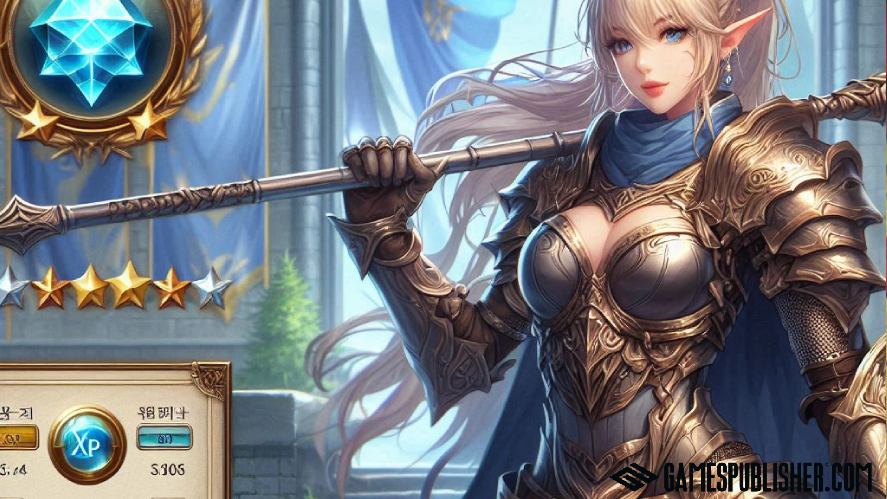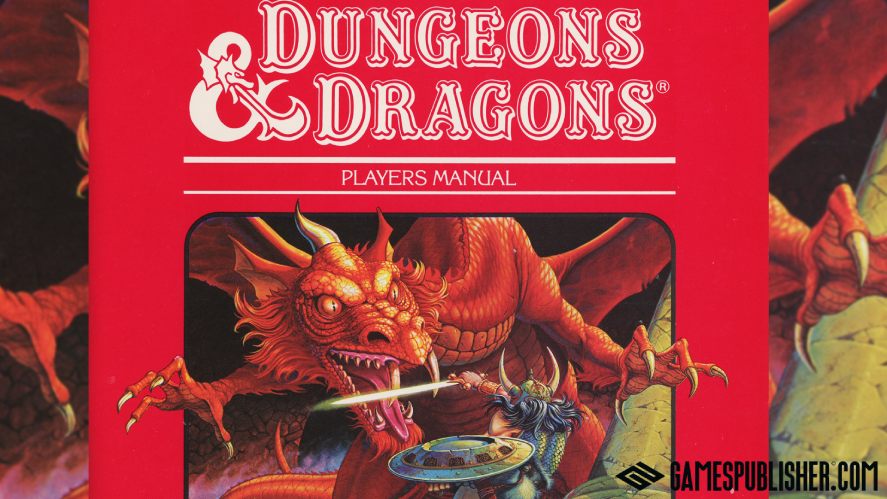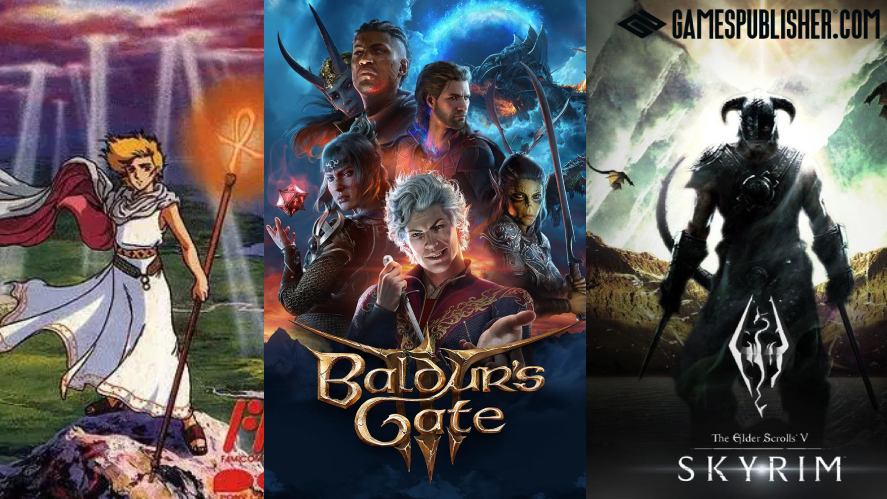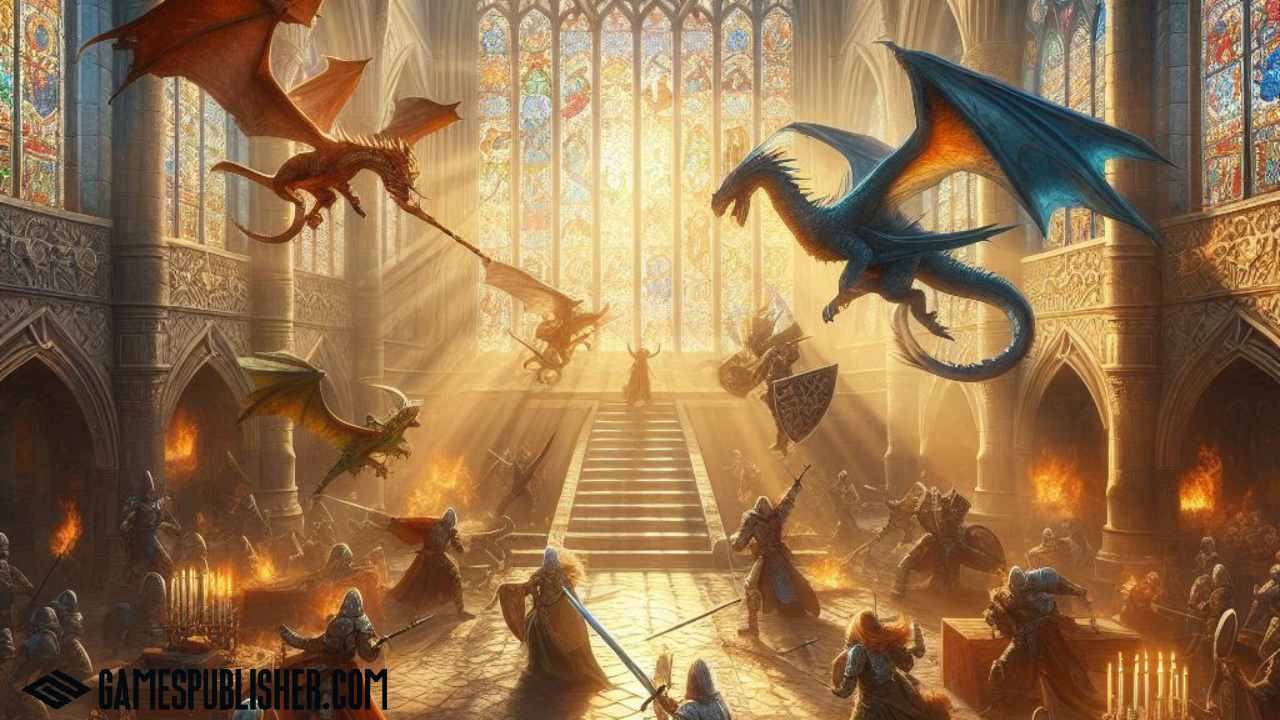RPG stands for role-playing game, one of the famous game titles loved by many gamers, and is considered one of the oldest genres in the gaming community.
Knowing that, Gamespublisher.com looks at the history of RPGs and how it impacts developers and players.
To achieve success, game developers or publishers should know the origin of RPGs. These games are some of the basis of why most of the big games we play now succeed.
So, this article will first discuss the history of RPGs, look at the major milestones, and then discuss its expansion in tabletop and digital mediums.
Defining the RPG Genre
In the video game industry, RPGs have unique features and these features can be different in every RPG game.
What is an RPG?
As you may know, an RPG, or role-playing game, is a type of video game where players take on the role of a character and go on adventures by making choices and taking actions through that character.
The core elements of RPGs include character development, narrative focus, and progression systems.
First, character development means players can improve their characters by gaining new skills, items, or abilities as they play.
Second, the narrative focuses on players following a narrative and making choices that affect what happens in the game.
Finally, progression systems let players level up their characters, strengthening them and helping them face more complicated challenges.

Additionally, there are different subgenres of RPGs.
For example, action RPGs focus more on fast battles.
On the other hand, tactical RPGs make you think carefully about your moves, like a game of chess.
MMORPGs, or massively multiplayer online RPGs, allow you to play with many other people online.
JRPGs, or Japanese RPGs, come from Japan and often have colorful characters and big adventures.
Each type of RPG is unique in its own way, but they all share the main idea of growing your character and following a story.
RPG Mechanics and Their Importance
RPGs have specific gameplay mechanics that make them unique.
One of the most important is experience points (XP). When players complete tasks or fight enemies, they earn XP.
Leveling happens when a player gets enough XP, making their character stronger.
Another key part is quests.
Quests are tasks that players do to move forward in the game’s story or earn rewards.
RPGs also have inventory systems where players collect and manage items like weapons and potions.
Lastly, dialogue trees allow players to make conversation choices, which can change how the story goes.
Now, even games that aren’t RPGs use XP, leveling, and quests to make gameplay more enjoyable.
Inventory systems and dialogue choices have also become common in other genres, showing how RPG mechanics have shaped the gaming industry.
The Origins of RPGs: From Tabletop to Digital
Years ago, RPGs began as tabletop games and eventually evolved into video games.
These games let players create characters and follow exciting stories, shaping the RPG genre we know today.

Tabletop RPG Beginnings: The Rise of “Dungeons & Dragons” (1974)
From the beginning, the RPG genre only started with tabletop. Then, in 1974, a big step in the development of role-playing games occurred when Dungeons & Dragons, commonly referred to simply as D&D.
It hit the market and became popular among many players since it was this game that allowed people to try the new genre and enjoy it.
This game was different from anything else at the time because it let players create their own characters and go on adventures in a fantasy world.
D&D was created by Gary Gygax and Dave Arneson, who worked together to make a game that focused on storytelling and teamwork, which changed how people played games.
Gygax and Arneson’s ideas had a significant influence on future digital RPGs.
They showed that games could be more than just winning or losing; they could also tell exceptional stories and let players make choices.
D&D focused on character creation, where players could build their characters with different traits and skills.
The game also used turn-based combat, where players took turns making moves during battles.
This system allowed for strategy and planning, making the game exciting and fun.
Because of D&D, many video games today use similar ideas.
The focus on storytelling, character creation, and turn-based combat in D&D laid the groundwork for many RPG mechanics we see in video games now.
This is why Dungeons & Dragons is still essential to gaming today.
Transition to Video Games: Early RPGs in the Digital Space
In the 1980s, RPGs directly adapted tabletop concepts into digital form.
The first RPG video game, Ultima, was made in 1981, followed closely by Wizardry.
These games took ideas from tabletop RPGs, like making characters and telling stories, and turned them into games you could play on a computer.
One person who helped with this was Richard Garriott, the creator of Ultima.
He used ideas from tabletop games to make RPGs work on computers.
Thanks to Garriott and other early developers, RPGs became popular in the video game world.
These early games helped show that RPGs could be fun and exciting, even on a computer.
The Evolution of RPGs: A Timeline of Major Milestones
RPGs have come a long way since the creation of the first role-playing video game, growing and changing with each decade.
This timeline will show essential moments that helped make RPGs what they are today, starting from the 1980s and going all the way to now.

1980s: Birth of the Digital RPG
In the 1980s, RPGs jumped from tabletop games to personal computers.
Among them, the most popular main game titles that helped bring RPGs into the digital world were Ultima, Wizardry, and The Bard’s Tale.
They let players explore large worlds, make decisions, and build their characters, just like in tabletop RPGs.
So, it’s understandable that it became very popular, and it laid the foundation for the early stages of future computer role-playing games.
At the same time, Japanese developers were also making a significant impact.
Games like Dragon Quest (1986) and Final Fantasy (1987) became massive hits.
They introduced new ideas, such as colorful characters and exciting battles, which helped make RPGs famous worldwide.
1990s: The Golden Age of RPGs
The 1990s was a really exciting time for RPGs.
Many console RPGs became very popular over the years, with the Final Fantasy series being one of the most well-known and widely loved among players.
This series had amazing stories and fun battles, making it a favorite for many players.
The Legend of Zelda was also a hit; even though it was more about action, it included RPG features like exploring and solving puzzles, which made it special.
On computers, RPGs got even better with explosive titles.
Games like Baldur’s Gate, Planescape: Torment, and Fallout became famous because of their incredible stories and the chance for players to create their own characters.
These games let players make choices and shape their adventures, helping to make the 1990s the golden age of RPGs.
2000s and Beyond: The Modern RPG Landscape
In the modern GPR, RPGs changed significantly with new ideas and technology.
One significant change was the rise of open-world RPGs, and a great example is The Elder Scrolls V: Skyrim.
In this game, players can explore a vast world filled with quests and adventures.
You can create your character and choose your path, making it different.
Another cool thing that happened was the mix of action and RPGs.
Games like Mass Effect and Dark Souls combined exciting action with RPG features.
In these games, players can level up their characters, fight enemies, and make choices that affect the story.
World of Warcraft also became very popular as an MMORPG.
This game lets thousands of players join the same world and go on quests together.
With modern technology, RPGs now have bigger worlds, better character systems, and fun multiplayer options, making them more exciting for everyone.
Key Innovators of the RPG Genre
RPGs became what they are today because of some very important people and companies. These creators helped bring new ideas to the games and made them more exciting.
In this section, we’ll learn about the key people who changed RPGs and made them better for any player.

Gary Gygax & Dave Arneson: The Tabletop Founders
Gary Gygax and Dave Arneson are the original creators of the popular tabletop game Dungeons & Dragons, often shortened to D&D, and this game has attracted many fans who enjoy role-playing adventures.
This game started a whole new way to play, and it became very important for RPGs.
D&D had a unique system of rules that helped players create their characters and tell exciting stories together.
Because of Gygax and Arneson, many other games followed their ideas.
Their work laid the foundation for RPG mechanics, which we still see in games today.
Thanks to them, players can enjoy fun adventures in different worlds.
Richard Garriott: The Father of Digital RPGs
Richard Garriott is a very important person in the world of RPGs. He helped move RPGs from tabletop games to computers with his game Ultima.
Before Ultima, people played RPGs on paper and used dice, but Richard made it possible for players to go on adventures in a digital world.
In Ultima, players could explore, fight monsters, and complete quests on their computers.
This was a significant change and made many people excited about playing RPGs.
Because of Richard Garriott, RPGs became popular on computers, and he is often called the father of digital RPGs.
Hironobu Sakaguchi: Innovator of Japanese RPGs
Hironobu Sakaguchi is a famous Japanese game maker who created the Final Fantasy series.
These series are very special because they have great stories and fun adventures.
The first Final Fantasy game came out in 1987, and Sakaguchi wanted players to feel like they were in a movie.
They loved the storyline of saving the world and fighting bad guys, so this was a massive success in his game development.
Because of Sakaguchi, many other game makers started to make games with good stories, too.
Nowadays, many games come with interesting stories and unique characters that make them more exciting and fun to play.
BioWare & Bethesda: Pioneers of Western RPGs
BioWare and Bethesda are two important game companies that helped make Western role-playing games (RPGs) exciting, such as Mass Effect and Dragon Age.
In each game, what you say and do can change the story, so it feels like your own adventure.
About Bethesda, they made The Elder Scrolls and Fallout, which will let you explore huge worlds.
You can go anywhere, do quests, and find new things.
The world in these games is big and full of fun surprises, and every player can have a different journey.
BioWare and Bethesda made Western RPGs fun by giving players many choices and big worlds to explore.
The Impact of RPGs on Modern Game Development
RPGs have changed how games are made, and their incredible features and exciting stories have inspired many other types of games.
Let’s see how RPGs affect different games and why they are still loved by players today.
RPG Mechanics Across Other Genres
RPG mechanics are used in lots of other games.
In a shooting game like Borderlands, you have a progression system so you can level up your character by earning experience points.
When you level up, you can choose new skills from a skill tree, which lets you pick special abilities that make your hero better, like shooting faster or having more health.
It’s fun for every player because it feels like they’re growing stronger!
In sports games like FIFA, there is also a way to improve your team.

You can train your players and improve their skills, like kicking the ball or running faster.
So, as your team gets more robust, each match becomes more exciting because you can win more games!
Even in platformer games like Hollow Knight, the RPG elements play a very important role and greatly enhance the overall gaming experience for players.
Your hero in your game can find new powers as you play. This is like leveling up because you can choose which powers to use from a skill tree.
Additionally, Hollow Knight has a deep story, which makes it feel like a real adventure, and players will want to keep playing to see what happens next.
Why RPGs Continue to Thrive
RPGs are very popular, so their appeal to players is enormous.
First, one of the reasons why the game attracts them is their exciting stories. These games have fun adventures where players can make choices.
When you play, you feel like you are part of the story and immerse yourself in it.
Another reason is that you can make your own unique characters.
Players can pick how they look and what skills they have, which makes every player’s game different and unique.
Additionally, RPGs also have big worlds to explore, like places to see and secrets to find. Players love to go on adventures and discover new things!
To get success, game publishers and developers can use RPG ideas in new games to make them even more fun.
You can mix RPG features with action or puzzle games.
You can also let players make choices that change the story so they want to play again to see what happens next.
In short, RPGs are great because of their fun stories, memorable characters, and fantastic worlds.
The Enduring Legacy of RPGs
In conclusion, RPGs still have a substantial impact on gaming today, as we can observe.
Later on, RPGs are constantly evolving with new ideas like AI, procedural generation, and using virtual reality to make games more fun.
When games become more sophisticated, RPGs will continue to expand.
To every game developer and publisher, it is essential to understand the history of role-playing games to take the best of what was created in the past and bring it to the players in the future.
Familiarity with RPG roots is crucial for making games even better and for advancing the genre.
Loading survey...

